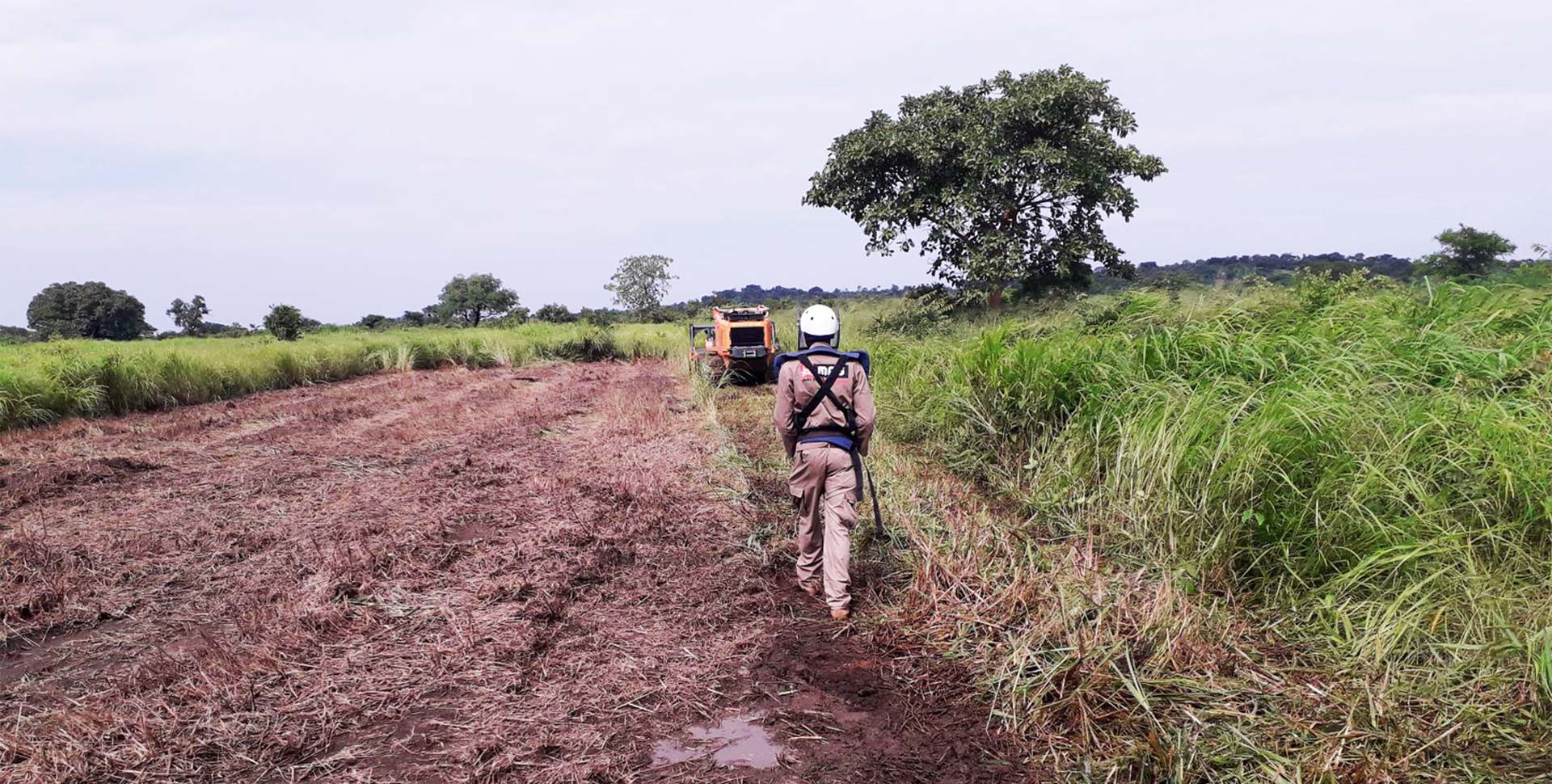
In South Sudan, the decades long war for independence have left a massive number of mines-both anti-tank and anti-personnel, as well as other explosive remnants of war (UXO) such as sub-munitions from cluster bombs, mortars and grenades on the ground. These are unexploded ordnance, often hidden underneath heavy vegetation or even under the soil, that now represent a serious danger to the local population, already badly hit by the devastating effects of war. In order to make the land safe for crops, housing, and pastures, the land needs to be cleared of landmines and explosive ordnance, a task which is often carried out by non-governmental organisations (NGOs).
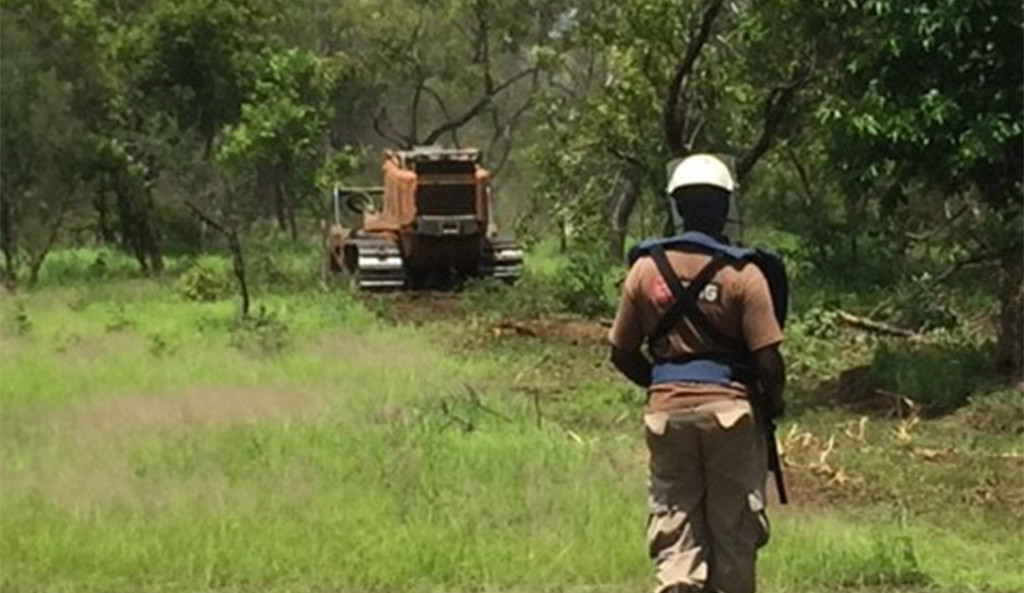 |
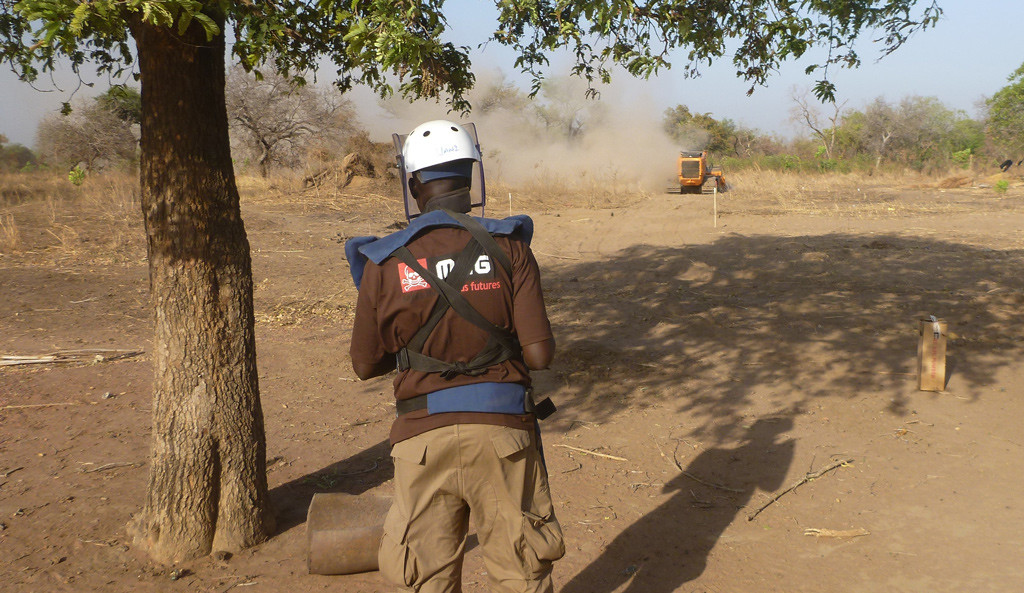 |
One of these, the British NGO The Mines Advisory Group (MAG), is the star of this story. MAG has been working in this region since 2004 to clear these mines and UXO. MAG is the largest NGO conducting humanitarian mine action in South Sudan and is an FAE client. MAG purchased a radio-controlled track vehicle (PT-300) and specialist cutting machine that can help MAG to clear mines and UXO quickly and efficiently.
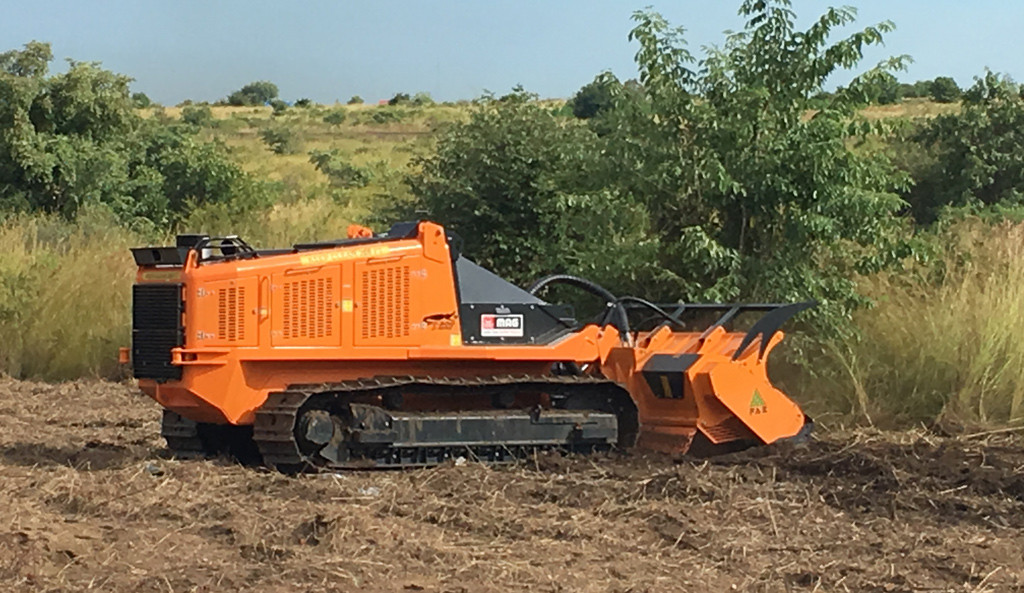 |
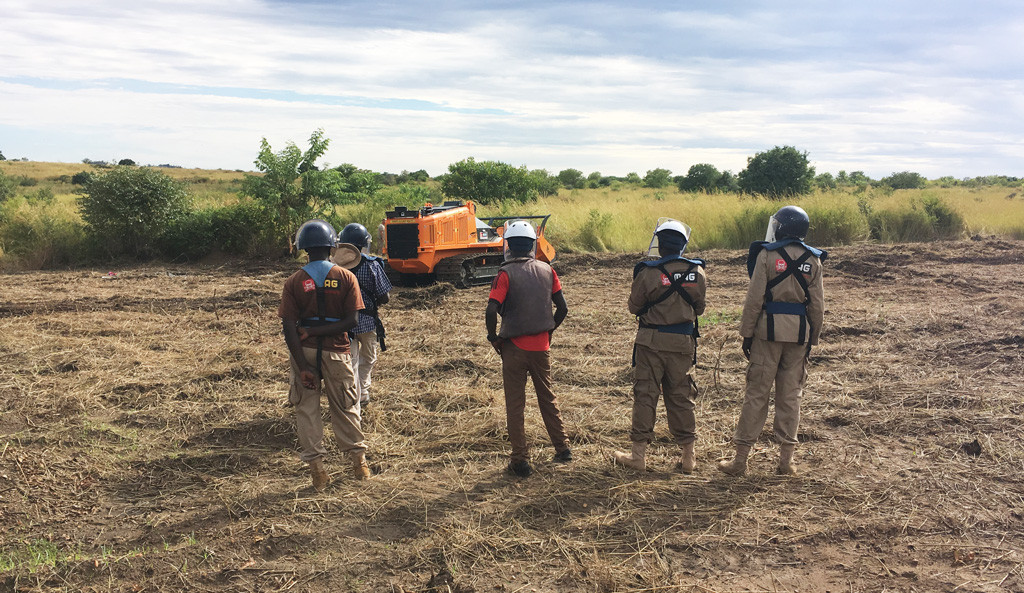 |
In 2016, when MAG acquired the PT-300, they immediately started clearing mines and UXO in Central Equatoria. More recently, the PT-300 has also been used in Eastern Equatoria.
Since 2017, MAG has acquired other FAE tillers (a 200/U-225 and some UML/SSL) and a mulcher in order to support its demining activity by clearing away vegetation to facilitate the removal of hidden explosive ordnance (EO).
Thanks to the ability to combine the PT-300 with various types of forestry cutters, MAG can use the machine for both clearance of UXO and landmines. Both the mulchers and the tillers can clear the land of vegetation such as tall grasses, shrubs, and even small trees up to 4 and 5 meters tall-although MAG tries to minimize the number and size of trees that we clear to protect the environment. Once the vegetation has been cleared, personnel armed with metal detectors are able to search for explosive ordnance under the ground. The tiller can also be used directly to detonate or break up landmines.
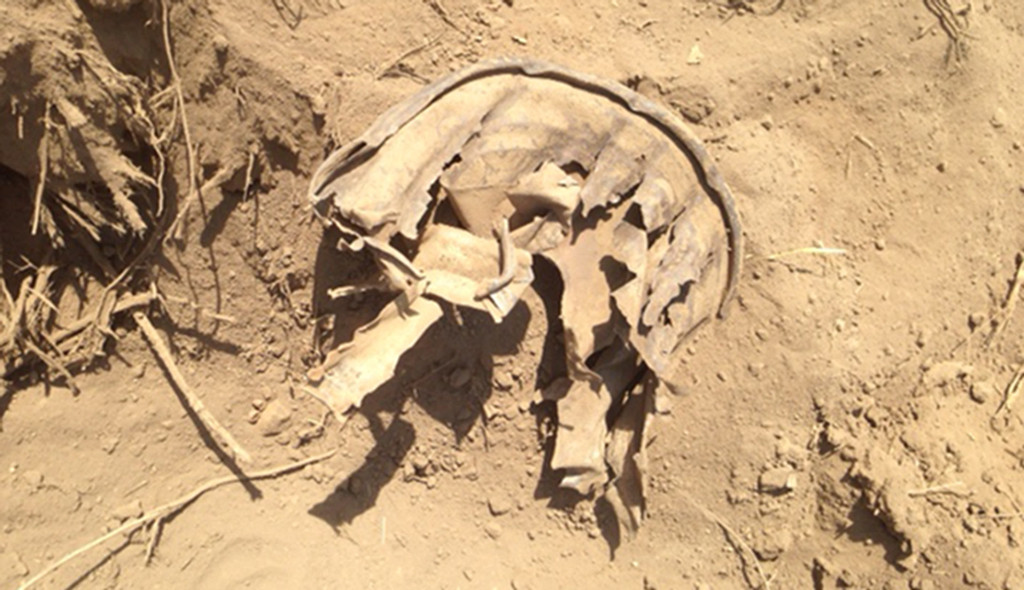 |
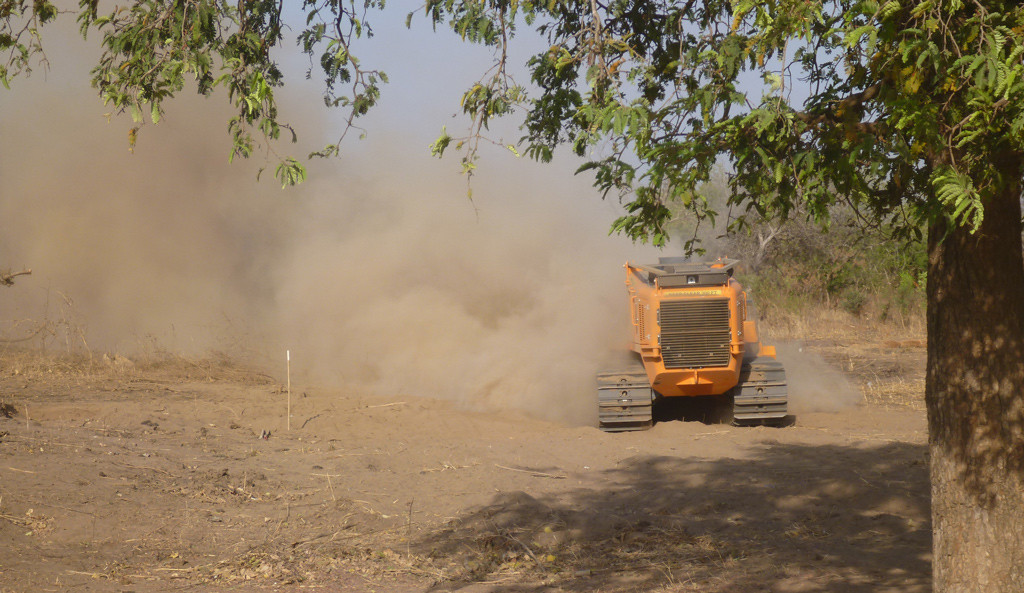 |
Mr. Sean Wetherill, MAG’s Technical Operations Manager, explains the various missions completed with FAE machines:
“In South Sudan, we have primarily been using the PT-300 to help us to clear sub-munitions, which are small bombs dispersed by cluster bombs. These sub-munitions have a high failure rate and remain dangerous for decades after they were dropped. We have used the radio-controlled PT-300 to prepare the land for so that we can then send in a demining team to clear these items. Because the machine is operated by remote, the operator (protected with special personal protective equipment or PPE) is able to remain relatively far away from the danger and can view the operations safely and clearly. The machine, and the availability different attachments, can also be used for clearing minefields”.
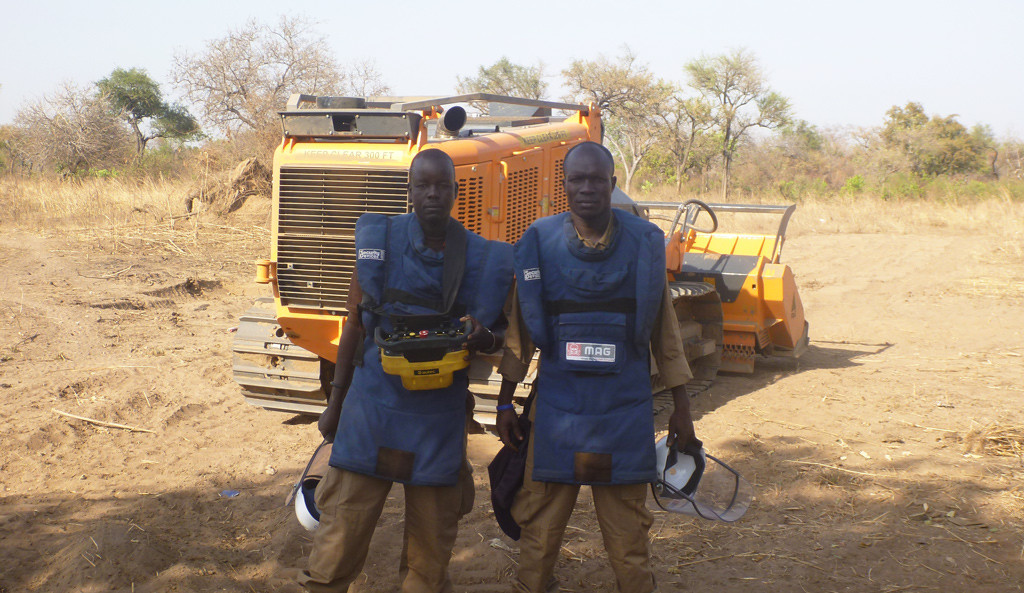 |
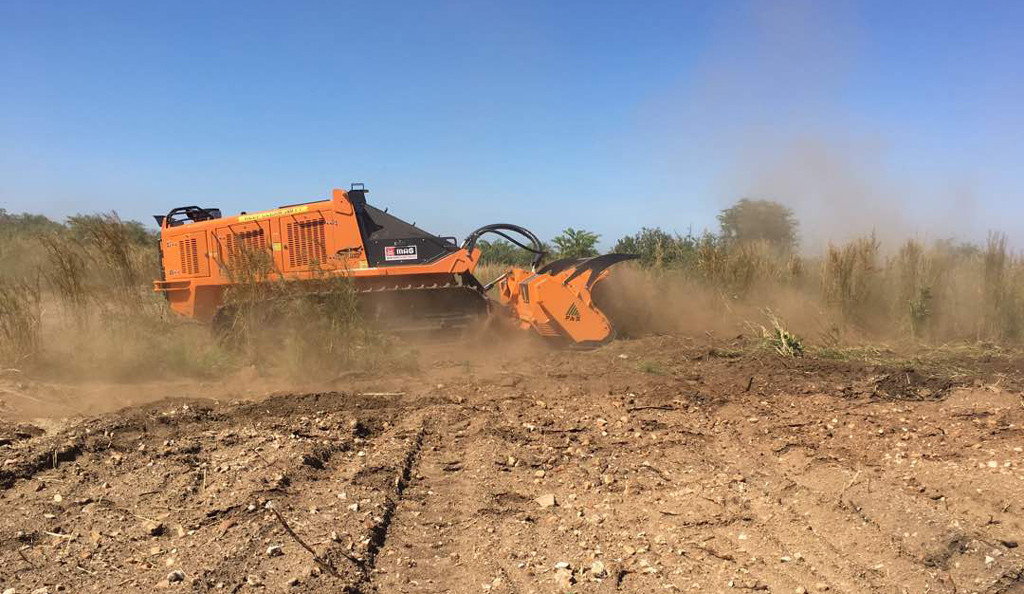 |
According to Mr. Wetherill, “The PT-300 has proven to be a reliable and robust machine that can withstand extremely difficult operating conditions in South Sudan. It has proven to be efficient and allows us to clear more land and a lower cost than would be possible with manual vegetation clearance, ensuring value for money for our donors, in particular the UK Government who provided funding for the machine.”
To find out more: maginternational.org
Share your story with us! Contact: [email protected]